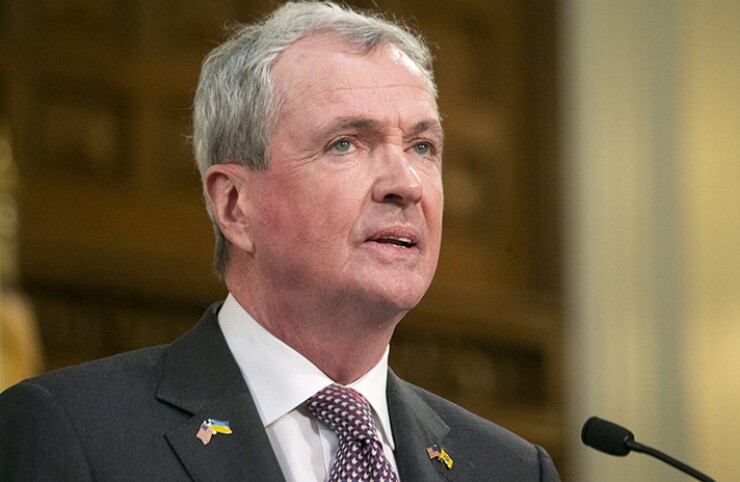Minimum wage rises in N.Y., N.J., Md.
4 min read

On Jan. 1, New Jersey, New York and Maryland joined a handful of states with a minimum wage of at least $15 an hour.
The increase to $15.13 an hour in New Jersey is expected to affect about 350,000 of the state’s 1.9 million hourly workers. Many non-hourly employees will also see an indirect benefit from the statewide increase, the state said.
Bloomberg News
“There is no doubt that inflation has had an impact on every New Jerseyan,” Gov. Phil Murphy said in a statement. “It’s important that we continue to ensure that everyone working in New Jersey has access to a livable wage.”
The minimum wage increased to $16 an hour in New York City, Long Island and Westchester County on Jan. 1 and to $15 elsewhere in New York state. Additionally, the minimum wage for
“New York’s historic minimum wage increase will help to ensure that New Yorkers can continue to keep pace with rising costs,” Gov. Kathy Hochul said in a statement.
The Jan. 1 rise is part of New York’s multi-year plan to increase the minimum wage through 2027 and then index it to inflation.
Additionally, all Maryland employers will have to pay their hourly employees a minimum of $15 per hour as of Jan. 1 under Senate Bill 555, also known as the Fair Wage Act of 2023, which was signed into law by Gov. Wes Moore in April.
California, Connecticut, Massachusetts and Washington are the other states that have a minimum wage of $15 per hour or above as does the District of Columbia.
Under New Jersey law, some employers have more time to hit the new level, such as seasonal businesses with six or fewer employees, which have until 2026. The wages for these employees, however, rose on Jan. 1 to $13.73 from $12.93.
Agricultural workers have a separate minimum wage timetable and were given until 2027 to reach the $15 level, with farm workers’ minimum hourly wage increased to $12.81 from $12.01 on Jan 1. Additionally, wages for long-term care facility direct care staff rose $1 to $18.13 an hour.
Tipped workers’ cash wages remained at $5.26 an hour, but the state noted that if their cash wages plus tips don’t equal the state minimum wage, the employer must pay the employee the difference.
The state has seen its finances improve over the past year.
The state met its July 1
The budget features an $8.3 billion surplus and $5.4 billion of new spending in addition to major tax code changes and tax-relief provisions.
The state will fund its full annual pension payment of $7.1 billion while directing more than $2 billion toward paying down debt and avoiding new bond issuance, which includes boosting the state’s Debt Defeasance and Prevention Fund to $2 billion.
The budget does not contain provisions
The provisions had been extended annually since 2020 while “the state’s financial future was uncertain,” the governor’s office said. With a strong economic rebound since, it was now “fiscally responsible” to let it expire, they said.
New Jersey received multiple credits
The upgrade “incorporates a solid economic recovery, with job gains leading the region and driving employment above the state’s pre-pandemic peak,” according to Moody’s.
Moody’s said the upgrade was supported by the state’s commitment to full, actuarial
“As we begin a new year full of hope and optimism, we are incredibly proud that New Jersey’s statewide minimum wage is now over $15 an hour,” Murphy said. “And it is also indexed annually to inflation, which means working families won’t fall behind when prices go up.”
Under New York’s plan, the minimum wage will continue to increase — by 50 cents in 2025 and 2026. In 2027, the minimum wage will rise at a rate determined by the Consumer Price Index for Urban Wage Earners and Clerical Workers for the Northeast region.
Issuers across New York State ranked third in the nation for municipal bond issuance in 2023, selling more than $42.3 billion of debt last year, down from number one in 2022 when it sold almost $50 billion, according to Refinitiv.
The state’s GOs are rated Aa1 by Moody’s Investors and AA-plus by S&P, Fitch and KBRA.







